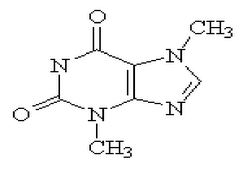Introduction & Recap
You write:
As far as the question of the existence of God is concerned, rather than evidence, I see a set of observations about the world that seems to me entirely open to interpretation. Let me give an analogy:I take this to be intended, not as a logically compelling argument for the existence of God, but as a more modest attempt to justify belief in God as a rational choice, in the face of ambiguous evidence. However, I find that the first part which discusses the ontology of love is incoherent, and its connection to the second part is seriously flawed.
I love my husband. This is what I experince. While it is possible to claim that what we call "love" is a matter of genetic and social programming or elctrochemical impulses, I reject an explanatory framework that negates the validity of my experiences. It seems to me too much like soplipsism.
Is there a way to prove that love is real or to prove that scientific reductionism is the correct view? I do not think so. It is not a question of evidence for one and not for the other. It is the same evidence, interpretted differently, for both.
I experience the existence of God. While some people may wish to attribute this to misfiring axons, delusions or whatever,I prefer a framework in which I can trust my own experiences.
The Ontology of Love
While you have said what you think love isn't, you haven't said what you think it is. Related to that, you have not explained in what way you think that a neurological account of love "negates the validity" of your experience.
The experience of feeling love (or any emotion or thought) is real -- it's a real feeling, in the mind of the subject. By definition, no one else can feel your feelings as such, but the emotional lives of normal humans are standardized enough that we can recognize each other's feelings from their description. Moreover, the feeling of love usually leads to characteristic behaviours which we all recognize -- if (hypothetically) you consistently and unrepentantly treated your husband badly, we would have grounds to question the sincerity of your claim to love him. What I'm getting at here is that the experience of human love (whatever mechanism may underlie it) seems a reasonably well-established phenomenom, and "real" enough on that count.
As for the underlying mechanism of the experience, all the data we have indicate that love (and everything else we feel or think) is produced by the network of neurons inside our skulls. PET imaging technology is at the point where we can see thought and emotion happen in the brain, in real time, and know exactly what regions of the brain are associated with what kinds of mental states (currently at rather low resolution, but that can only improve). This is backed up by studies of brain-damaged patients -- physical damage to specific areas consistently produces characteristic deficits in cognition, emotion and behaviour. I suggest you read up on cases like that of Phineas Gage, or Oliver Sacks' The Man Who Mistook His Wife For A Hat. And of course we all know how simple chemicals, taken either medicinally or recreationally, can profoundly alter mental functions. From this I draw two lessons:
- Observable brain activity associated with characteristic mental states seems plenty "real" to me -- real in the same sense as the chair I'm sitting in, or the computer I'm typing on (or the electrons and transistors that make it work -- even if I can't see them). What more "reality" do you need?
- Explaining mentition in terms of neurology doesn't prove there isn't "something more" to it, but if you still insist that there is a ghost in the machine, then I have to ask: where is it, and just what is it doing?
Note that I do not claim that scientific reductionism is the "correct view"; I only claim that it is the view which allows us to make progress in understanding the world (including ourselves). In rejecting that as an "explanatory framework" (under the belief that it "negates the validity of" your experience in some unspecified way) you are in fact rejecting the only framework which actually explains anything, in favour of a pseudo-explanation logically indistinguishable from "It happens by magic!" So: I do not find your alternative to be an interpretation of the evidence so much as a superfluous gloss arbitrarily applied to it.
Mapping Human Experience to Religious Experience
To reiterate a point made earlier: subjective experience is its own justification -- if you feel it, it is a real feeling (even if its neurological correlates are not currently being monitored by EEG or other apparatus). However, your experience of God -- just like your experience of the computer you are reading this on, or the chair you are sitting on -- is both a subjective experience and is taken as implying an objective claim about the external world. Such claims are not justified by the experience alone, but are (potentially) open to verification or falsification against external reality. In my view, crossing that category boundary invalidates the isomorphism between your experience of love for your husband and your experience of God.
Conclusions
- A reductionist, neurological account of subjective experience does not compromise its reality in any meaningful way that I can see.
- Subjective experience is at least largely neurological, and there is no compelling reason (nor any explanatory value) in postulating additional components to it.
- There is not a valid isomorphism between the claims following on the experience of love, and those following on the experience of God.



